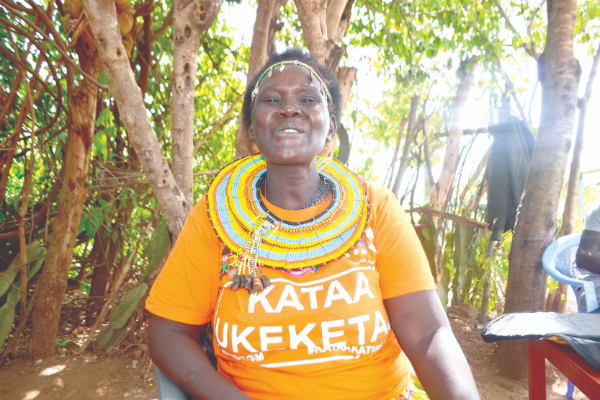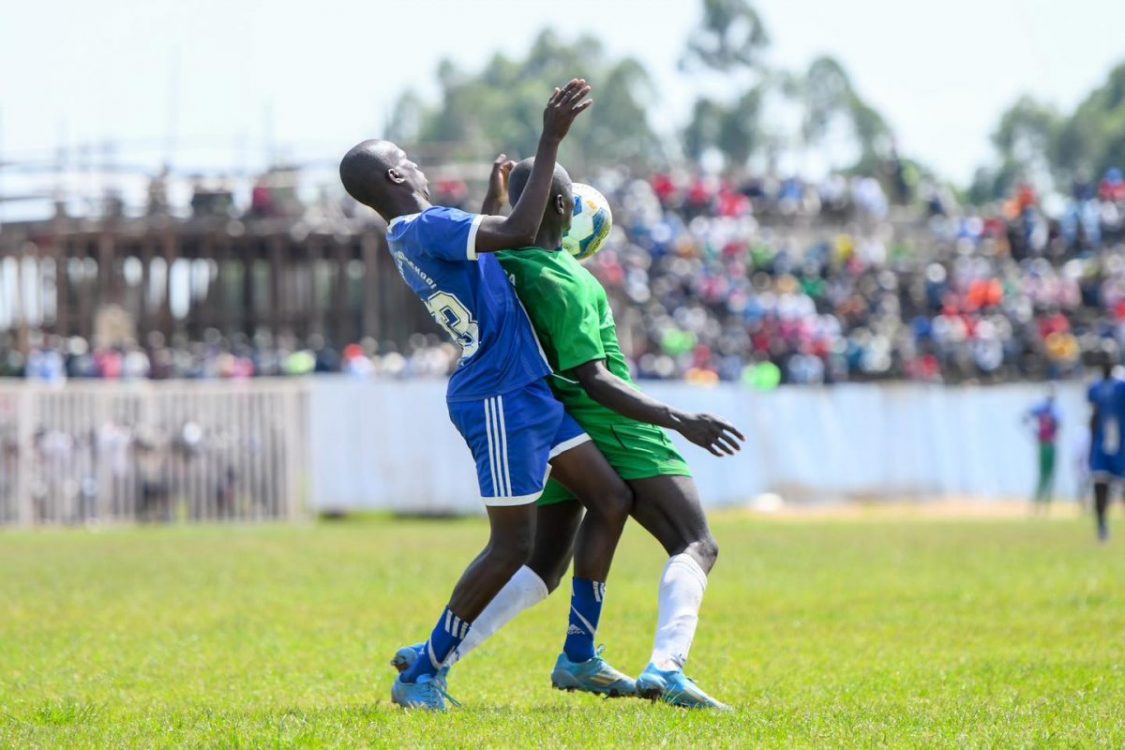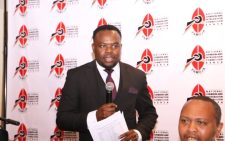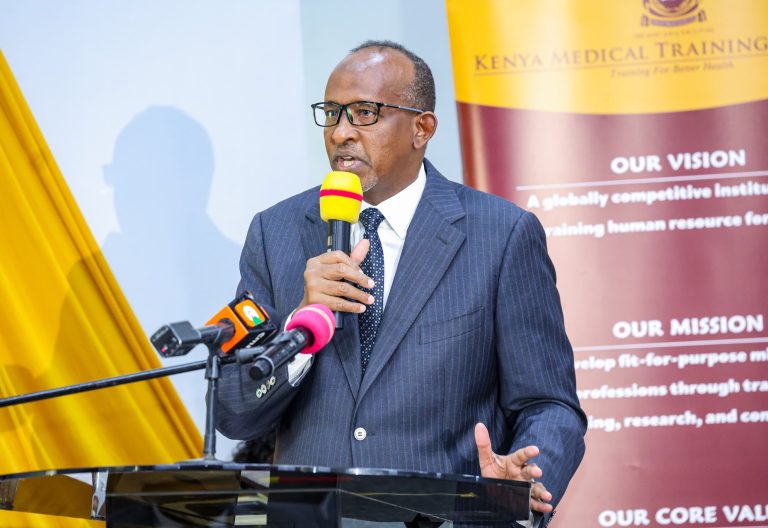Life-saving work of one Pokot midwife

Mary Kebyatich Loriama, 67, first performed her maiden duty as a midwife 22 years ago, albeit, by chance.
Today, the mother of six is celebrated for her life-saving work in Sebit village, Ortum Division, West Pokot County. Many women have trekked the rugged and hilly roads to Loriama’s, looking for her, to help them deliver their children.
She is a certified midwife whose sterling performance has since seen her make referrals to Ortum Mission Hospital for complicated cases.
As a trained midwife, she has seen it all; babies born weeks past their due dates, multiple births and umbilical cords coiled around neck.
Loriama further imparts parents-to-be with skills on what childbirth and child care entails.
“In this region, people always joke that I have delivered so many babies. Most of them assume I am a doctor,” she shares.
In the year 2000, Loriama had accompanied her sister to Ortum Mission Hospital, several kilometers away to give birth. Her sister’s labour pain began early in the morning, she recalls.
However, in the middle of the journey, her sister’s condition took a sharp turn for the worse. Loriama was worried.
“I panicked. I was worried my sister might not make it,” she recalls.
Helping a sister
In the remote regions of Sebit, situated in the North Rift along Kenya’s Western boundary with Uganda, pregnant women don’t even have the option of an ambulance, while most cannot afford to pay for transport fee to health facilities.
With neither an ambulance around, nor money to hire a matatu to Ortum Mission Hospital, Loriama had to do something.
She managed to help her sister deliver safely. “It turned out to be a safe delivery,” Loriama sighs while in deep thought.
Interestingly, her sister insisted on going back home saying there was no need to reach Ortum Mission Hospital. Not even the persuasion from other women onlookers could change her sister’s mind. They would later use an oil tanker lorry heading to Tororo-Uganda to head back home after waiting for several hours.
But the ever-smiling tall woman, did not know that selfless act would turn out to be her calling several years later.
A month after her heroic act, she got wind that Ortum Mission Hospital management was looking for midwives from the expansive region for a training opportunity.
Once again, she took the leap of faith and went for the training. “I was trained for several weeks on childbirth process, breastfeeding and support by Dr Miriam Lopus and awarded a certificate and a badge to enable me operate,” Loriama explains, proudly showing her badge and certificate.
She would continue discharging her duties diligently, traversing several villages, helping woman deliver and at the same time playing a crucial role in preventing maternal and neonatal deaths.
She explains how helping women deliver is critical, especially for new mothers.
“Being a midwife has never felt like a job. For me, it’s something I thoroughly enjoy.”
With her entire career having been oscillating between the corridors of Ortum Mission Hospital and her small village of Sebit, Loriama remembers one specific incident in 2014 that really stood out.
“There was a mother who was giving birth to twins. I managed to help her give birth to a boy. The other baby did not come out as anticipated and so, she referred the mother to Ortum Hospital for further medical attention,” she shares.
“Unfortunately, the other twin, a girl did not make it. She passed away at Ortum Hospital. It was sad, ” she adds.
Loriama notes that the terrain of midwifery has changed so much over the years. To develop her skills further, she has trained on helping HIV positive pregnant mothers reduce the rate of transmission of the virus to their babies.
Biting midwife shortage
Most women use traditional birth attendants because of the high cost of healthcare, and there is little awareness of mother-to-child transmission of HIV.
“We are encouraging the women to take their antiretroviral drugs and teach them on good nutrition. Because of incidences of HIV/Aids infection we have since been trained to advice pregnant women to give birth in health facilities,” says Loriama.
In the region, many mothers die during delivery due to complications. As of 2019 for example, the county lost 208 out of 1,000 mothers during child delivery according to the County Health Department.
The numbers are attributed to distance to health facilities and illiteracy. In cases where pregnant women’s first point of contact are midwives, the biting shortage still clouds their noble efforts.
This huge deficit exists not just in Kenya, but globally. A recent study, 2021 State of World’s Midwifery report by The United Nations Population Fund (UNFPA), World Health Organisation (WHO), International Confederation of Midwives (ICM) and partners sheds light on the shortage.
The new report sounded an alarm on global shortage of 900,000 midwives. It further noted how millions of lives of women and newborns are lost, experience ill health or injury-because the needs of pregnant women and skills of midwives are not recognised or prioritised.
Esther Oketch from the Midwives Association of Kenya says traditional and trained midwives feel neglected.
She adds that Covid-19 pandemic continues to affect quality of services offered within the maternal, neonatal and child sector.
“Midwives are vital in the health sector and we need more in our hospitals. We need to invest more to ensure that these people are not forgotten. Investing in midwives will prevent a lot of birth complications that sometimes lead to death,” says Oketch in an earlier interview.
Loriama’s work isn’t always easy, she admits. “Sometimes, it is emotionally difficult to interact with people who are underprivileged, with little or no resources,” she says.
She adds, “But I have no choice. I have to do it, and it makes me feel happy to be saving lives and useful in the community.”
Loriama still has her hands full doubling up as an anti-Female Genital Mutilation crusader who traverses the community to preach about the risks of the old-age cultural practice. She has also taken up bead-making as an alternative enterprise to FGM practice.
“We are talking with community members (men and women) to shun such retrogressive practices like FGM,” intimates Loriama who is a member of I-Rep Foundation, a community-based group aimed at eradicating FGM in the county.
Meanwhile, Loriama is a happy woman. “I feel happy when I see the children I help deliver grow up to become respected people in the society,” she says in ending.









